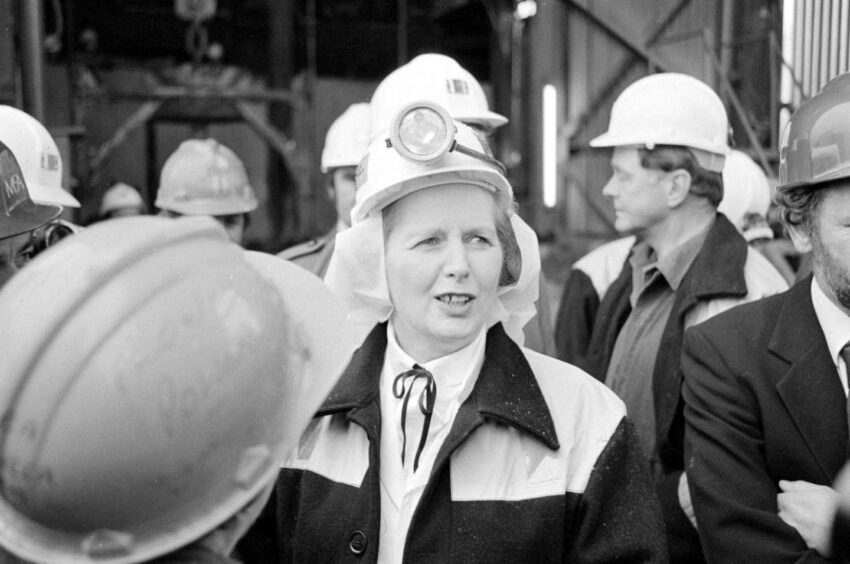
The 1984-85 miners’ strike has once again hit the headlines, despite ending 40 years ago.
In my case, what grabbed my attention was a fascinating TV documentary where multiple miners revealed a great deal more inter-trade union warfare and treachery than at the time.
And that the then prime minister Margaret Thatcher stood back and let them get on with dragging National Union of Mineworkers (NUM) top man Arthur Scargill off his perch.
Thatcher’s reward for the miners who achieved this? An oh-so private dinner for those behind deposing Scargill and killing the strike.
Before 1994, the coal industry was publicly owned and most miners favoured this. There were two unions: the NUM and Roy Lynk’s Union of Democratic Mineworkers (UDM).
Both clashed with Margaret Thatcher as she sought to privatise coal. But it was many years later in files released by the UK National Archive that it became clear just how close to Thatcher Lynk’s UDM actually was.
According to those papers and an article carried by Liverpool University in August 2017, Lynk met Thatcher three times between 1986 and 1989 – and he insisted each time that the details of these meetings be kept secret.
Crucially, it turned out that Lynk was pro-privatisation.
The Union’s public position had to be one of opposition. But privately, the union leadership supported privatisation and saw it as an opportunity.
Had Lynk’s position been known in the 1980s, it would have sparked a major scandal and crippled his union.
The article reveals: “The new files make it clear just how close the two parties were, and how vital an ally the government considered the UDM to be.”
One net effect of privatisation was the decimation of traditional coal mining in the UK.
It was said then that Thatcher wanted mining killed off in favour of the then new North Sea oil and gas industry and that privatisation was her way of achieving this.
In early 2021 during the run-up to COP 26, then PM Boris Johnson claimed that Thatcher’s closure of the pits was part of a green, eco-strategy of the Conservative government.
“Thanks to Margaret Thatcher, we had a big early start,” he said.
His remark deeply offended Welsh First Minister Mark Drakeford who described them as “crass and offensive” on BBC Radio 4’s Today programme.
“The damage done to Welsh coal mining areas 30 years ago was incalculable and here we are 30 years later, the Tories are still celebrating want they did.”
In August 2021, just before COP 26, the Wales Institute of Social & Economic Research & Data published a paper: “The Pit Closures of the 1980s – part of Mrs Thatcher’s Green Eco Strategy?”
It opens: “The truth is that there is no evidence that environmental concerns played any part in Thatcher’s determination to run down the coal industry in the 1980s.
“By contrast there is a great deal of evidence that her real motives were to deal a mortal blow to the industrial power of the National Union of Mineworkers as part of a broader attack on the trade union movement.”
There is clearly deep research behind the paper; too much to do it justice here.
However, there are two paragraphs that stand out for me. One quotes a Welsh trade unionist caught up in the 80’s machinations.
It goes: “If it (coal) had been phased out gradually and replaced with other industries … people would have accepted that coal is … a fossil fuel. We need to look after the Earth. Not BANG! Because … there was an ulterior motive that was just to destroy the unions and … Wales paid a particularly heavy price.”
And the second: “Within an economy that had an overall declining use of coal in its energy mix, it is notable that although domestic production steeply fell, imports of coal rose and remained significant right up until 2014-15.”
There’s a message for wannabe prime minister Keir Starmer. He needs to understand that the North Sea oil and gas industry is already in transition; not perfect but it’s real. It knows the writing is on the wall.
Starmer reveals massive ignorance in his latest plan to tax the industry to death. Grab a few quick billions and hope Big North Sea Oil dies fast.
Bit like coal really, stuff the idea of an orderly transition. Let’s do it, Thatcher china shop style!
Recommended for you
